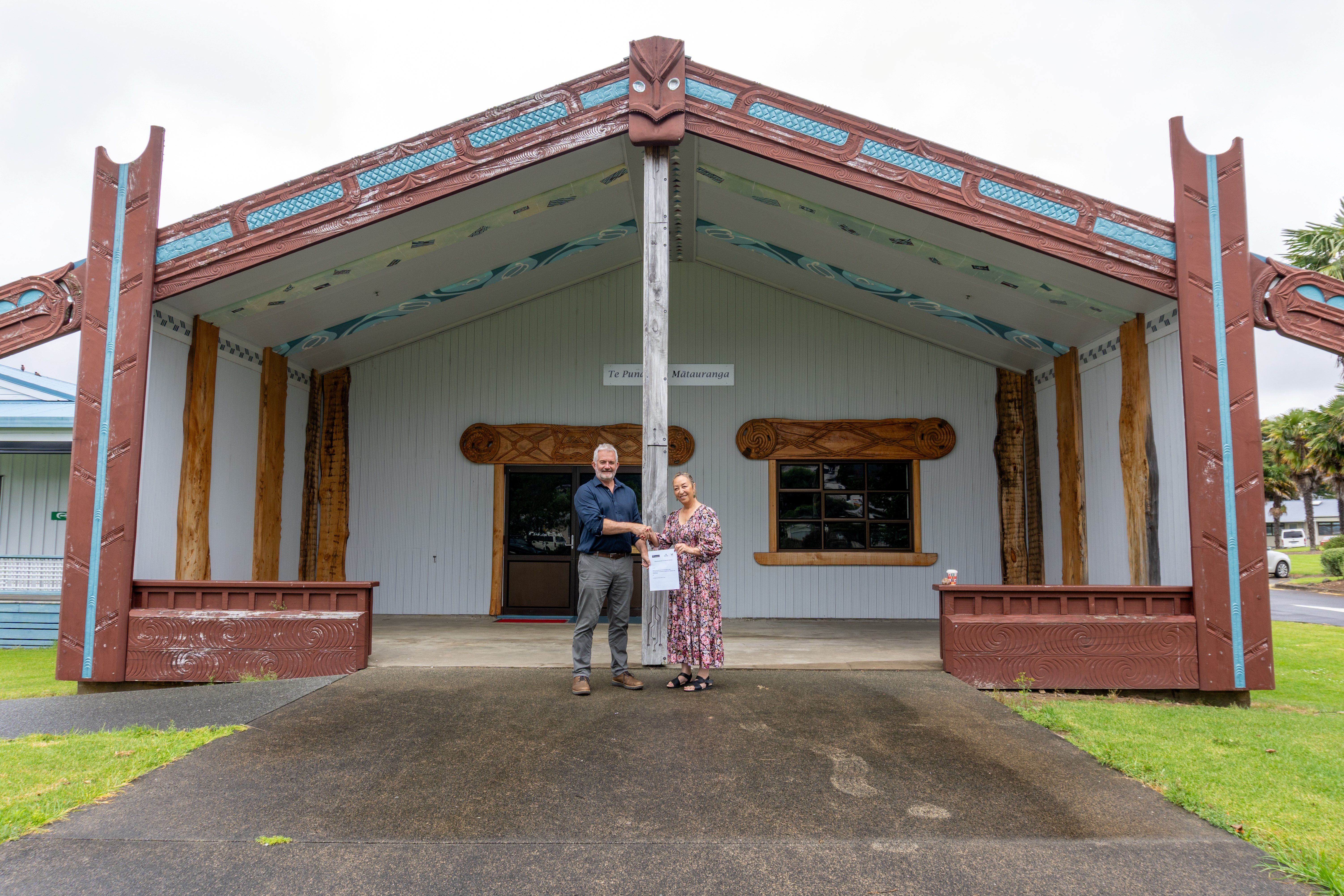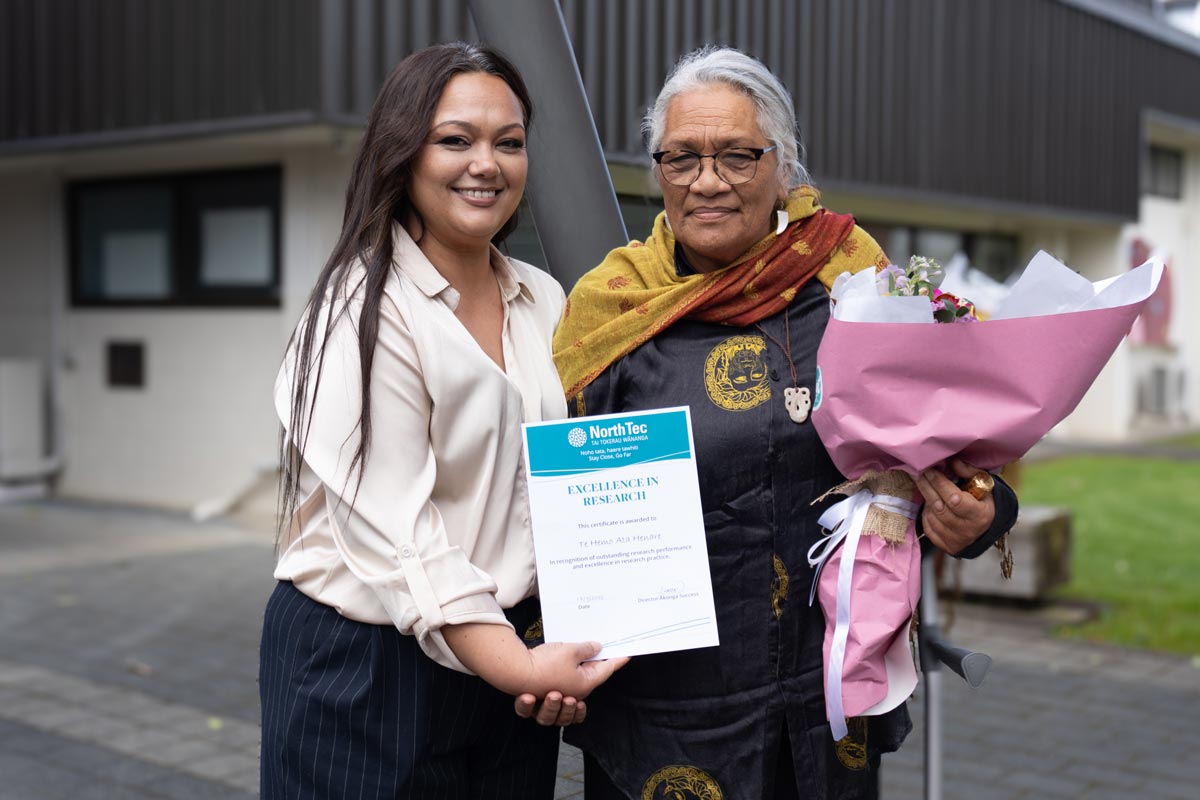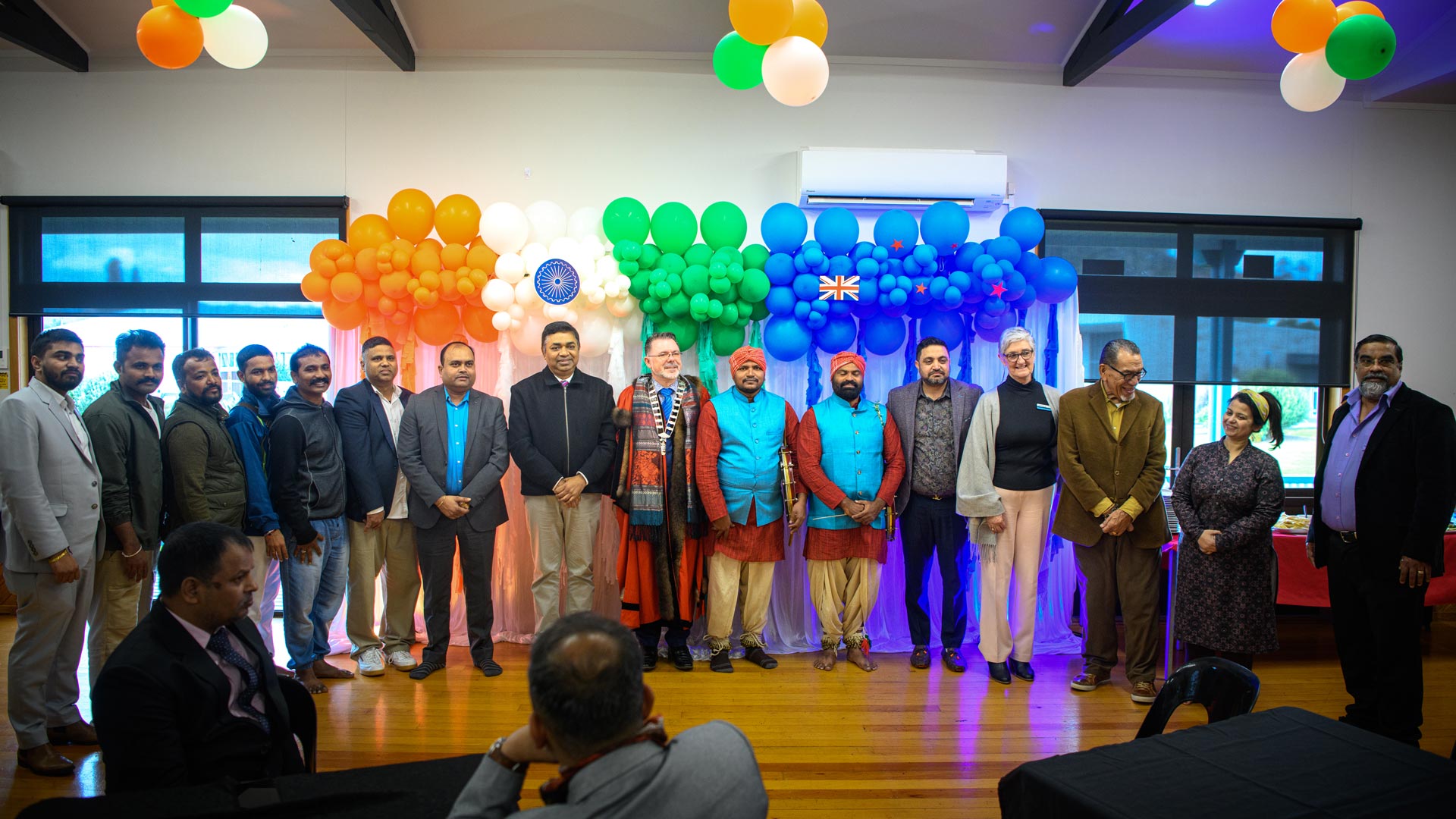Fallow Ground Project gets a helping hand
NorthTec’s horticulture and cookery pathways have teamed up with Otago Polytechnic postgraduate student Tobias Wilkinson to help bring his thesis project, Fallow Ground, to fruition. Tobias is undertaking his Master of Design Enterprise, focusing on sustainable growth and industry development.

NorthTec’s horticulture and cookery pathways have teamed up with Otago Polytechnic postgraduate student Tobias Wilkinson to help bring his thesis project, Fallow Ground, to fruition.
Tobias is undertaking his Master of Design Enterprise via online study, focusing on sustainable growth and industry development.
His thesis focuses on the idea that current crop production is unsustainable. While studying, Tobias works part-time on an avocado orchard, Phufar Orchards, in Maungatāpere, Whangārei. This is where the idea took hold.
“If we look at all of the ground in between these monocultures, there is a large number of completely unused resources,” says Tobias. “I'm doing a Master of Design Enterprise with Otago Polytechnic. My thesis concept consists of using systems design as a process of looking at a monoculture, working out where the fallow ground, or the vacancy is within the system and then utilizing it.”
“Deliberately designed foodstuffs made from produce grown within existing monocultures mimic the ideas of diversity in nature and aims for a ‘close-to-zero’ footprint and a ‘do-no-harm’ ideal by using existing resources.”
Fallow Ground refers to unplanted land that is left for some time to regenerate; it is also a phrase used to refer to the ground between trees on an orchard when young plants are still growing. It is this ground that Tobias was interested in when he was contemplating his thesis.
“My boss Greg and I were contemplating all the new weeds amongst the young avocado trees in A block,” Tobias recalls. “I noticed a great deal of the weeds growing were nightshades. Chillies and Capsicums are also a nightshade. That’s how the idea came about.”
Tobias planned to plant another crop of produce, in this case, chillies and capsicums, in the raised mounds the avocado trees were growing on. This would achieve two goals, the first, using the fallow ground between the avocado trees, the other reducing the need to weed the mounds between the trees as they grew.
“Greg offered to lease me the land between the trees off him at a zero rate for the project. It was a very generous offer. I have the use of all the equipment and water access to do this project.”
As the project started to gain some traction, Tobias realised he would need some help in the implementation. After discussions with Greg, he turned to a good friend, and NorthTec cookery tutor, Hughie Blues. Hughie proposed the idea of giving NorthTec students some on-the-job experience while helping bring Tobias’ project to life.
NorthTec ordered the seeds and grew the seedlings which equated to three cultivars of chillies and two cultivars of capsicum. When the August 2021 Covid lockdown hit, Martin Kearney, NorthTec technician at the Dyer Street campus, took the seed trays and looked after the growing chilli seedlings in his own greenhouse. This saved the project from dying out when students and tutors were unable to access campus.
Once the lockdown eased NorthTec ākonga undertaking the NZ Certificate in Horticulture (Level 3) helped Tobias in the planting, cultivation, and picking of the chilli plants along with NorthTec tutor Michael Shepheard. One of these students Nina Wells continued to work at the orchard and now has a full-time job in the oyster mushroom growing side of the business.
After picking, the chillies were passed to Hughie and his students from NorthTec’s NZ Certificate in Cookery (Level 4) who then chopped, stirred, boiled, and roasted the chillies and capsicums to perfection. They have created a sweet and spicy Chilli Jam and a blazing hot Harissa paste for real spice lovers.
“It’s been a great learning process for the students,” says Hughie. “These projects give them real-world experience. They are also learning how to use every part of the product so that nothing goes to waste. This is becoming a much more valued skill as people are more invested in a product's environmental footprint than they have been in the past.”
Grant Kitchen, National President at the New Zealand Chefs Association, is helping with professional support through his wide networks and will be aiding with the branding and marketing of the products. Minus project costs, any proceeds will be divided equally with a share being given to a community enterprise.
Tobias hopes to increase the project to work across multiple areas of horticulture and the food production sector and plans to create a community-minded business enterprise. The idea would be that a share of the proceeds would be returned to the community.
“Community is just another environment where healthy growth needs to be helped along,” Tobias says. “Giving money back to the community where the business takes root is one way to help that growth. I see Fallow Ground as a set of design principles which can be used within almost any system.”
The jam and harissa paste are on sale now on Facebook: https://www.facebook.com/Fallow-Ground-Project-105602502164467/?ref=page_internal





